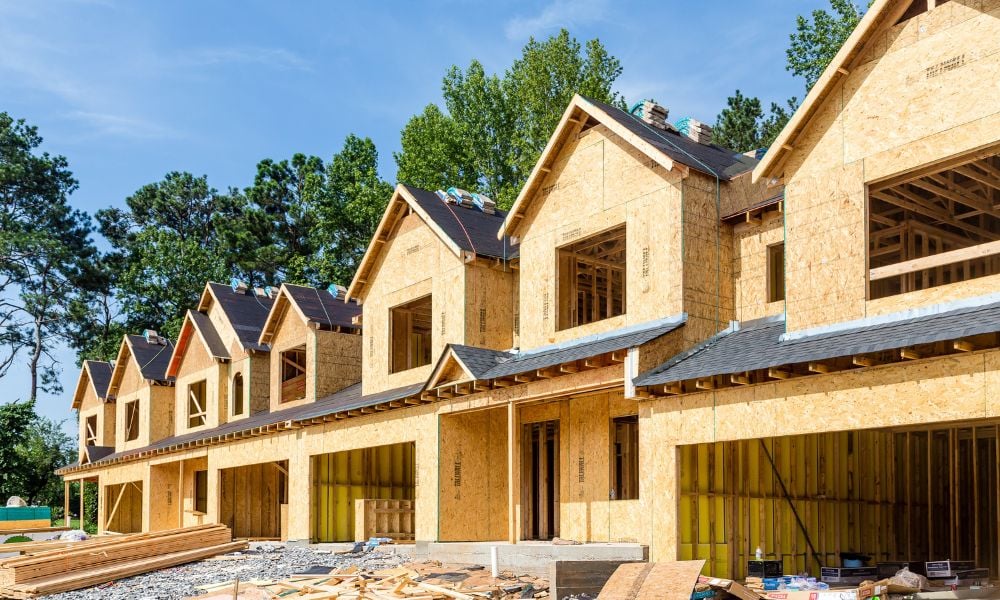New policy allows 75% of fees to be deferred for four years or until occupancy

B.C. homebuilders are applauding the provincial government’s latest move to amend development cost charges, saying the changes could help ease financial pressures as construction costs rise and housing starts continue to fall.
Starting in 2026, developers will be able to defer 75% of their development charges for up to four years or until occupancy, whichever comes first. Currently, builders must pay the full amount up front. These fees are collected by municipalities to fund essential infrastructure such as roads, sewers, parks, and community centres.
The province will also allow developers to use bonds instead of irrevocable letters of credit as financial guarantees, a change industry leaders say will help free up capital during construction.
“I think this is great news,” Homebuilders Association Vancouver CEO Wendy McNeil told the Vancouver Sun. “This announcement, it really shows there is appetite and responsiveness to the industry’s concerns.”
She added that deferring payments will allow builders to invest in additional projects instead of having significant capital locked into one development.
“It’s all about certainty, and that’s the biggest hurdle that the industry is facing, or was facing is that the different charges, different schedules and different tools really didn’t make it easy for builders to do business,” McNeil said.
The announcement comes as housing starts in B.C. dropped nearly 30% in one month. According to Canada Mortgage and Housing Corporation (CMHC), starts fell from 53,118 units in April to 37,455 in May—more than 4,000 units lower than the same period last year.
Housing Minister Ravi Kahlon acknowledged the construction slowdown and emphasized that this policy is part of a broader effort to improve housing affordability and supply. He cited ongoing initiatives such as restrictions on short-term rentals, increased investment in affordable housing, and widespread upzoning.
“It’s hard to move forward on projects because the costs were built in at a different price point,” Kahlon said. “And so that means we have to innovate. We have to find new ways to ensure that we’re able to lower costs.”
The changes were welcomed by local officials, including Surrey Mayor Brenda Locke, Delta Mayor George Harvie, and Langley Township Mayor Eric Woodward, all of whom noted that municipalities had previously lacked the authority to implement such deferrals on their own.
“The municipalities were not able to do this until now and didn’t have the legislative authority to implement this themselves,” Woodward said. “At the moment, I see that they’re making a number of these rather obvious changes. I think we would like to see them focus on only the things that they can do, such as get construction costs down and help municipalities and the developers with financing costs.”
Industry groups say the changes reflect a needed shift in how development is funded. Anne McMullin, president of the Urban Development Institute, said she has seen multiple projects stall because upfront municipal costs made them financially unviable.
Chris Gardner, president of the Canadian Federation of Independent Business, called the move “a step in the right direction” but said more needs to be done.
Read next: First Ontario, now Vancouver: Condo crisis forces developers to cut staff, sell properties
“We need to look at how we take costs out of housing construction, the fees and taxes that the province and the municipalities levy on housing,” Gardner said. “That is a crucial element to getting buyers back into the market.”
He also suggested the provincial government should bear a greater share of infrastructure costs to help municipalities lower their development charges.
“Right now we’ve got interest rates that are still higher than a lot of would like to see when they go apply for mortgages,” he said, pointing to broader economic uncertainty, including lingering effects from US tariffs and lagging private sector job growth.
Make sure to get all the latest news to your inbox on Canada’s mortgage and housing markets by signing up for our free daily newsletter here.



